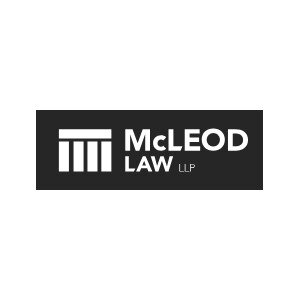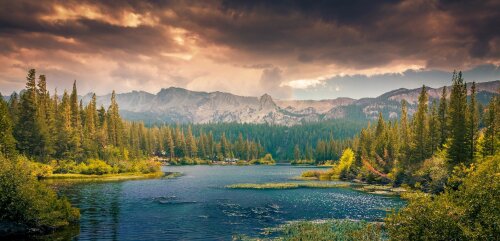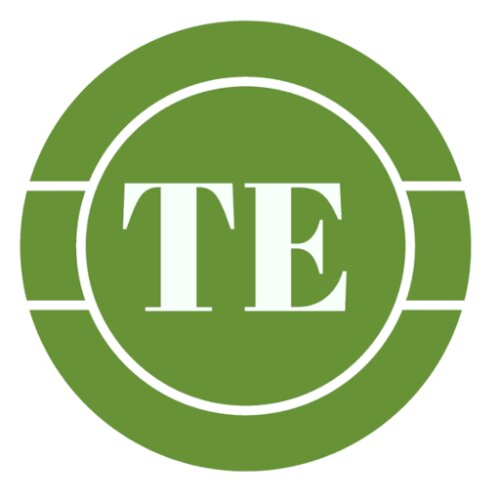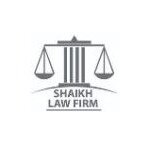Best Renewable & Alternative Energy Lawyers in Canada
Share your needs with us, get contacted by law firms.
Free. Takes 2 min.
Or refine your search by selecting a city:
List of the best lawyers in Canada
About Renewable & Alternative Energy Law in Canada
Canada is a global leader in renewable and alternative energy, with a significant portion of its electricity generated from non-fossil fuel sources such as hydroelectricity, wind, solar, biomass, and geothermal. Renewable & alternative energy law in Canada is a specialized area of legal practice that covers the regulation, development, and operation of clean energy projects, as well as the policies designed to promote sustainability and reduce greenhouse gas emissions. This legal field intersects with environmental law, energy regulation, real estate law, Indigenous rights, and corporate law, making it both multidisciplinary and dynamic. Canadian law at the federal, provincial, and municipal levels governs how renewable energy projects are permitted, financed, constructed, and integrated into existing energy grids.
Why You May Need a Lawyer
Engaging in renewable and alternative energy projects can be a complex process with several legal hurdles. Here are some common situations in which legal counsel is essential:
- Drafting and negotiating agreements for the development, operation, or financing of renewable energy projects
- Navigating regulatory approvals and environmental assessments required by federal and provincial authorities
- Managing land use issues including leases, acquisitions, easements, or dealing with municipal zoning bylaws
- Understanding and complying with government incentive programs, tariffs, and renewable energy credits
- Resolving disputes between project developers, landowners, contractors, and regulatory bodies
- Protecting intellectual property and proprietary technology in renewable energy ventures
- Ensuring respect for Indigenous rights and consulting with Indigenous communities for projects on traditional land
- Advising on mergers, acquisitions, or investments in renewable energy companies
A qualified lawyer can help you navigate the legal landscape, avoid costly mistakes, and ensure your project complies with all relevant laws and regulations.
Local Laws Overview
Renewable and alternative energy in Canada is governed by a mix of federal, provincial, and municipal laws. Key legal aspects to consider include:
- Federal Regulation: The federal government oversees environmental impact assessments, cross-border energy trade, and greenhouse gas regulations. Agencies like Natural Resources Canada and the Canadian Energy Regulator have significant roles.
- Provincial Jurisdiction: Provinces have the primary authority over energy resources, including electricity generation, transmission, and distribution. Each province has its own regulatory bodies, such as the Ontario Energy Board or Alberta Utilities Commission, and varying policies on renewable energy development and incentives.
- Municipal Bylaws: Local governments regulate land use, permitting, and zoning which can significantly impact the location and operation of renewable energy projects.
- Environmental Assessment: Projects may require environmental assessments to evaluate potential impacts on land, water, wildlife, and communities. The Canada Impact Assessment Act and provincial equivalents apply.
- Indigenous Consultation: Developers must consult and, in some cases, accommodate Indigenous communities when projects may affect traditional territories or treaty rights, as recognized in Canadian law.
- Incentives and Programs: Both federal and provincial governments offer programs and financial incentives to encourage investment in renewable and alternative energy, each with specific eligibility and compliance requirements.
Understanding the intricate web of regulations is crucial for compliance, successful project completion, and the realization of financial incentives.
Frequently Asked Questions
What is considered renewable or alternative energy in Canada?
Renewable energy comes from sources that are naturally replenished, such as hydro, wind, solar, biomass, tidal, and geothermal. Alternative energy may also include emerging technologies and fuels that reduce environmental impacts compared to traditional fossil fuels.
Do I need a permit to build a solar or wind energy project?
Yes. Most projects require multiple permits, including land use permits, building permits, environmental assessments, and, in some cases, approval from provincial energy regulators. Requirements vary by province and municipality.
What government incentives are available for renewable energy projects?
Both the federal and provincial governments offer programs such as grants, tax credits, low-interest loans, and feed-in-tariff systems to support renewable energy development. Eligibility and terms depend on the location, technology, and scale of the project.
How are Indigenous rights considered in renewable energy development?
Canadian law mandates the duty to consult and sometimes accommodate Indigenous communities when their rights or lands may be affected by a project. Early and meaningful engagement is required, and agreements or partnerships are common.
Are there specific requirements for connecting renewable energy to the grid?
Yes. Each provincial utility or system operator has technical standards, safety requirements, and interconnection agreements that must be met before a project can connect to the electricity grid.
Can I sell the electricity I generate from renewable sources?
This depends on the province and the size of the system. Many provinces have net metering programs allowing small-scale producers to sell excess electricity back to the grid, while larger producers may need special sale agreements.
How do environmental assessments affect renewable energy projects?
Environmental assessments evaluate the potential impacts of a project on the environment and are often required before any construction. Failure to complete required assessments can delay or halt a project.
Is financing available for renewable energy projects?
Yes. Financial institutions, government-backed programs, and private investors offer various financing options, although they may require demonstrated compliance with legal and regulatory frameworks.
What risks should I be aware of in renewable energy investments?
Common risks include changes in policy or incentives, permitting delays, challenges in obtaining land or grid access, technology risks, and disputes with contractors or partners. Legal guidance can help mitigate many of these risks.
Do I need a lawyer for small-scale renewable energy installations at my home?
While small projects like rooftop solar may not always require a lawyer, consulting one is recommended if you face complex permitting, land use, or contract questions, or are participating in incentive programs or group-buying arrangements.
Additional Resources
Individuals seeking information or legal assistance regarding renewable and alternative energy in Canada can consult a variety of organizations and government bodies:
- Natural Resources Canada
- Canadian Energy Regulator
- Canada Mortgage and Housing Corporation (for energy-efficient home initiatives)
- Provincial Ministries or Departments of Energy
- Provincial energy regulators, such as the Ontario Energy Board, Alberta Utilities Commission, and British Columbia Utilities Commission
- Canadian Renewable Energy Association
- Independent Electricity System Operator (IESO) in Ontario
- Clean Energy Canada
- Local law societies for referrals to qualified legal professionals
It is also helpful to check municipal websites for local bylaws and permitting requirements for renewable energy installations.
Next Steps
If you are considering a renewable or alternative energy project, or have legal questions or concerns in this field, consider the following next steps:
- Identify the scope and nature of your project or issue to determine the regulatory framework that applies
- Gather information on relevant permits, incentives, and assessment requirements
- Consult authoritative resources and government websites for up-to-date policies and guidance
- Engage an experienced lawyer specializing in energy and environmental law to advise you on compliance, contracts, and risk mitigation
- Prepare documentation relevant to your project, such as land titles, business plans, and technical reports, for legal review
- Seek referrals or check with your provincial law society to find qualified legal counsel with experience in renewable and alternative energy
By taking these steps, you can navigate the legal complexities of the renewable and alternative energy sector in Canada and ensure your project is compliant, sustainable, and successful.
Lawzana helps you find the best lawyers and law firms in Canada through a curated and pre-screened list of qualified legal professionals. Our platform offers rankings and detailed profiles of attorneys and law firms, allowing you to compare based on practice areas, including Renewable & Alternative Energy, experience, and client feedback.
Each profile includes a description of the firm's areas of practice, client reviews, team members and partners, year of establishment, spoken languages, office locations, contact information, social media presence, and any published articles or resources. Most firms on our platform speak English and are experienced in both local and international legal matters.
Get a quote from top-rated law firms in Canada — quickly, securely, and without unnecessary hassle.
Disclaimer:
The information provided on this page is for general informational purposes only and does not constitute legal advice. While we strive to ensure the accuracy and relevance of the content, legal information may change over time, and interpretations of the law can vary. You should always consult with a qualified legal professional for advice specific to your situation.
We disclaim all liability for actions taken or not taken based on the content of this page. If you believe any information is incorrect or outdated, please contact us, and we will review and update it where appropriate.
Browse renewable & alternative energy law firms by city in Canada
Refine your search by selecting a city.














